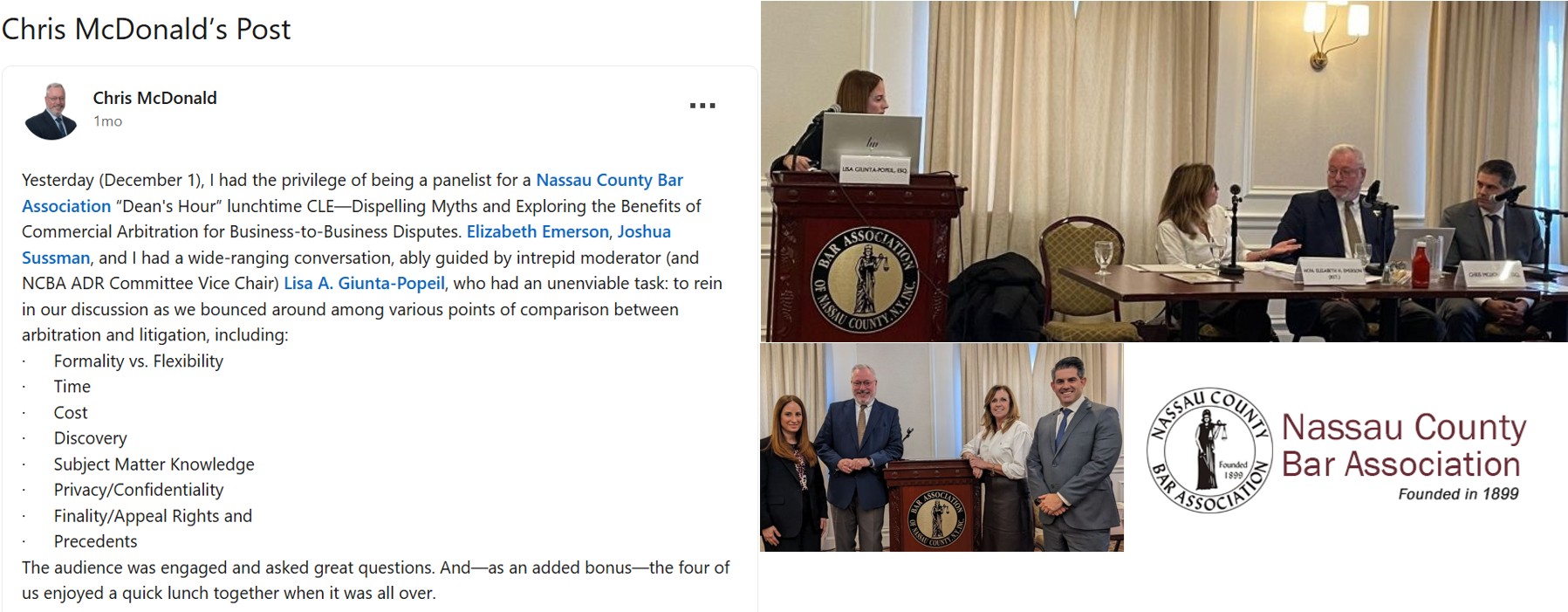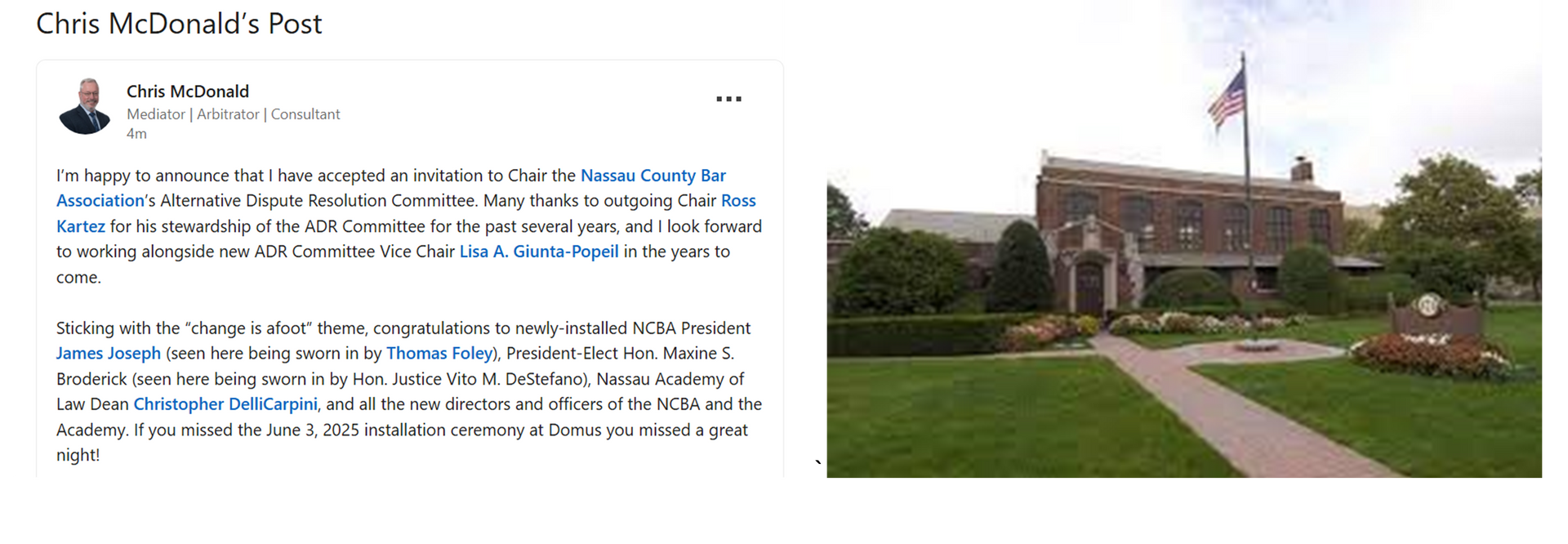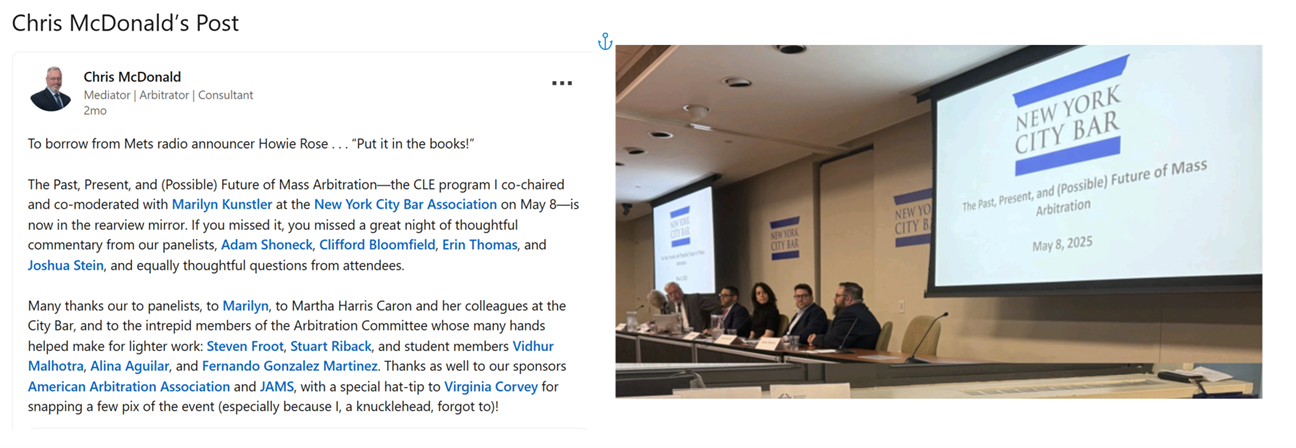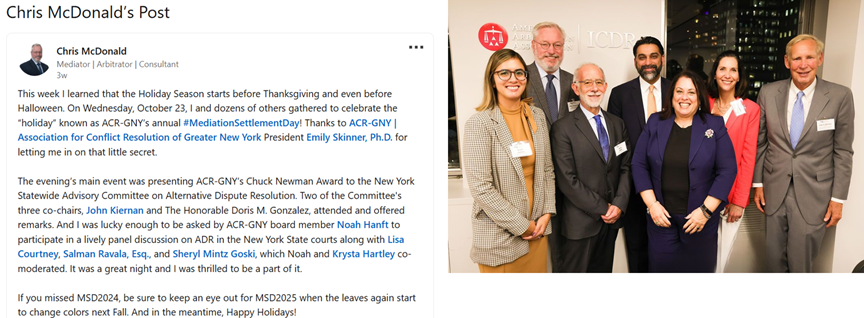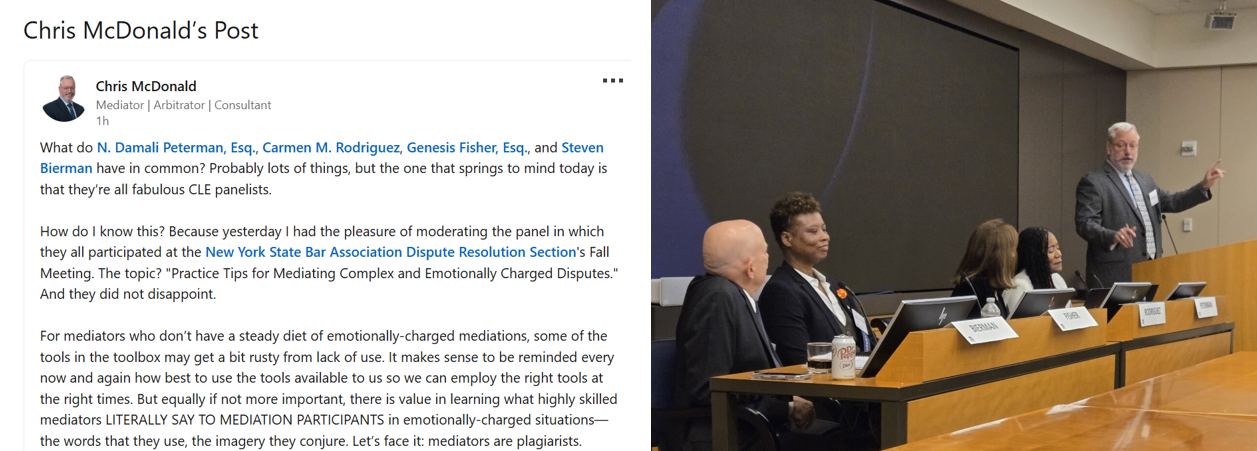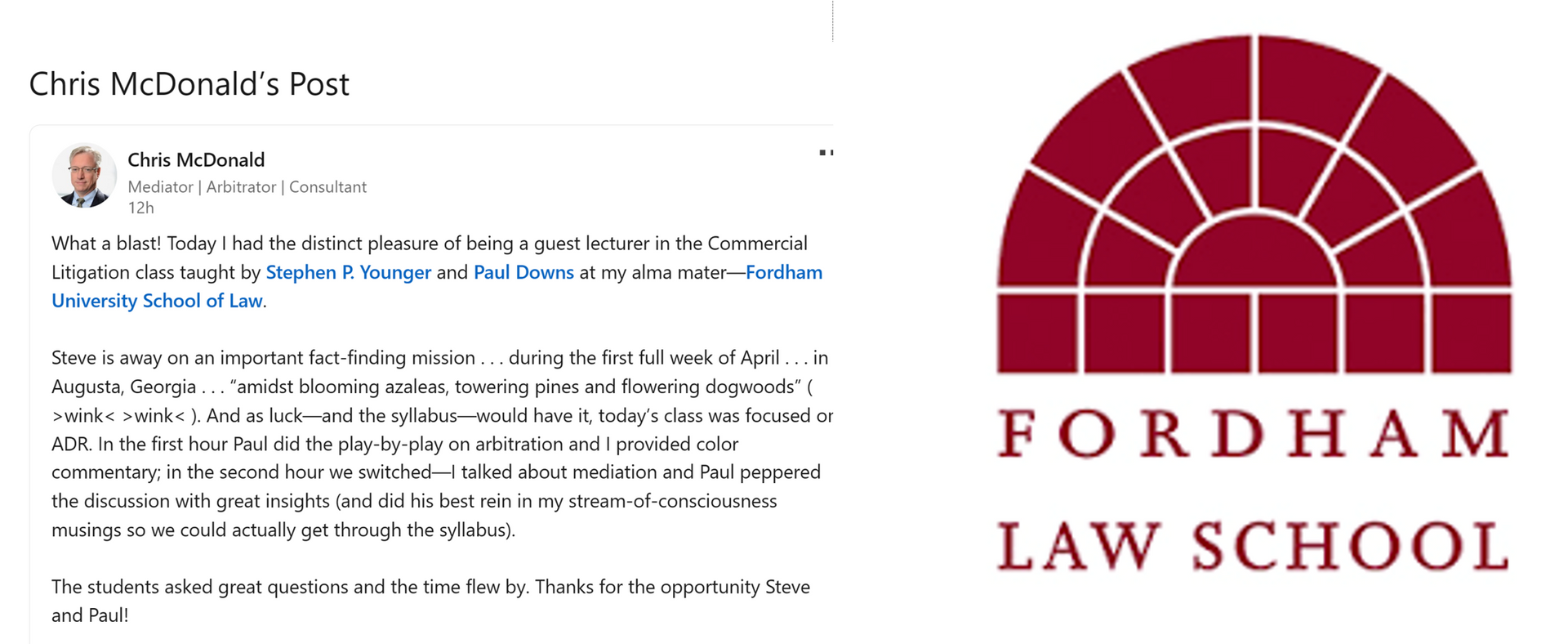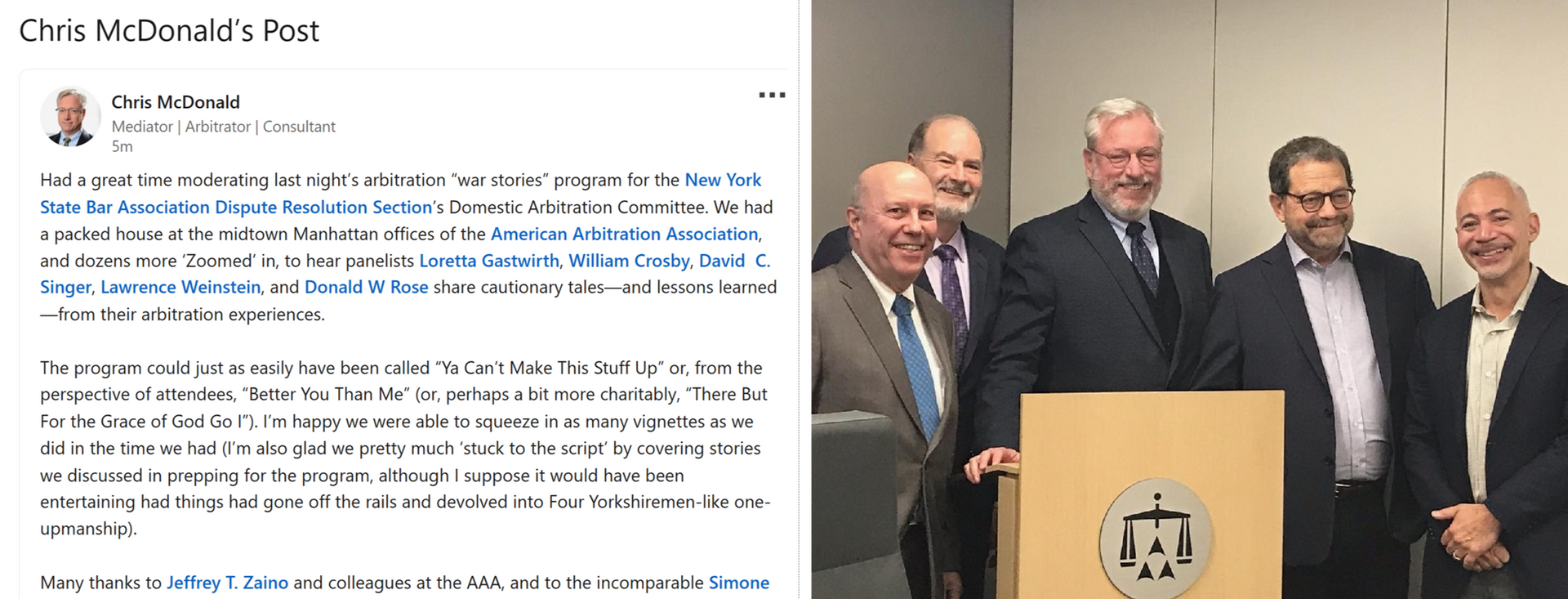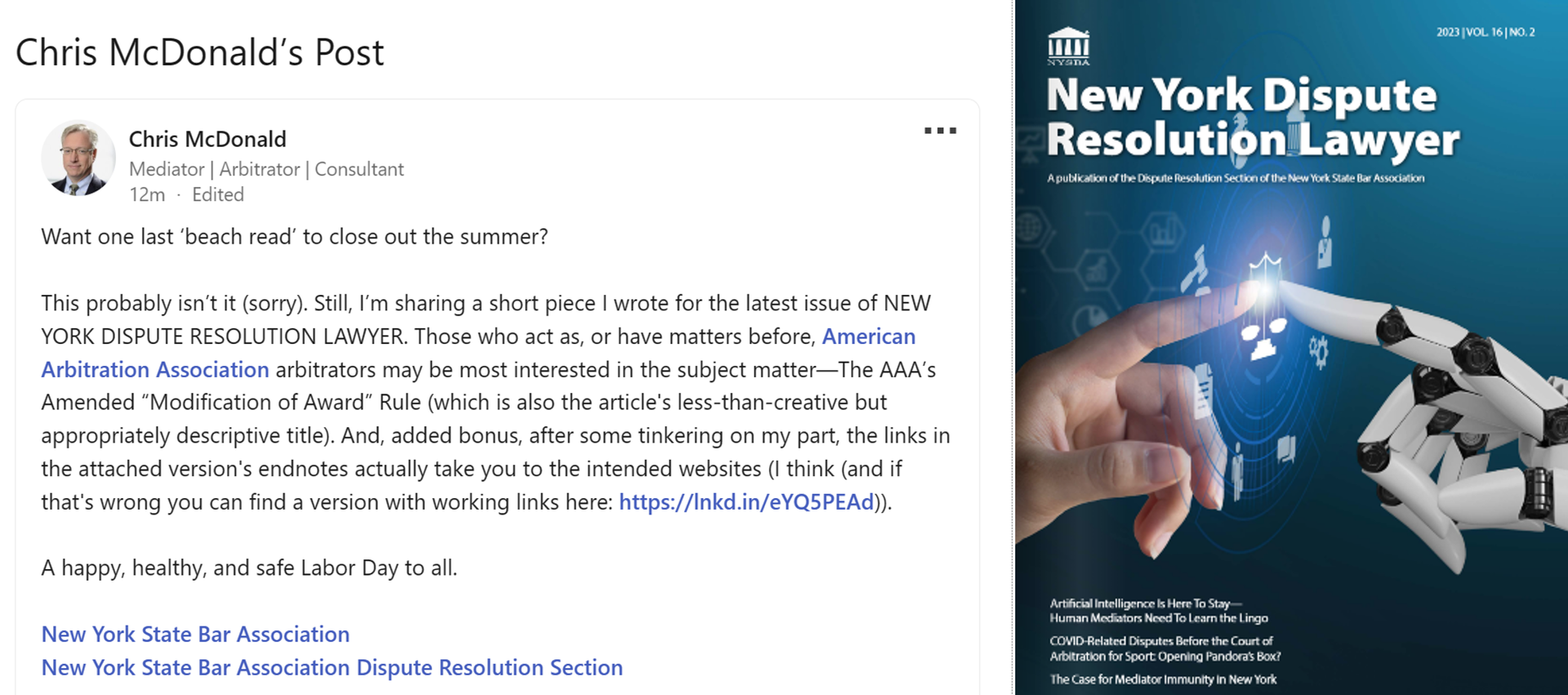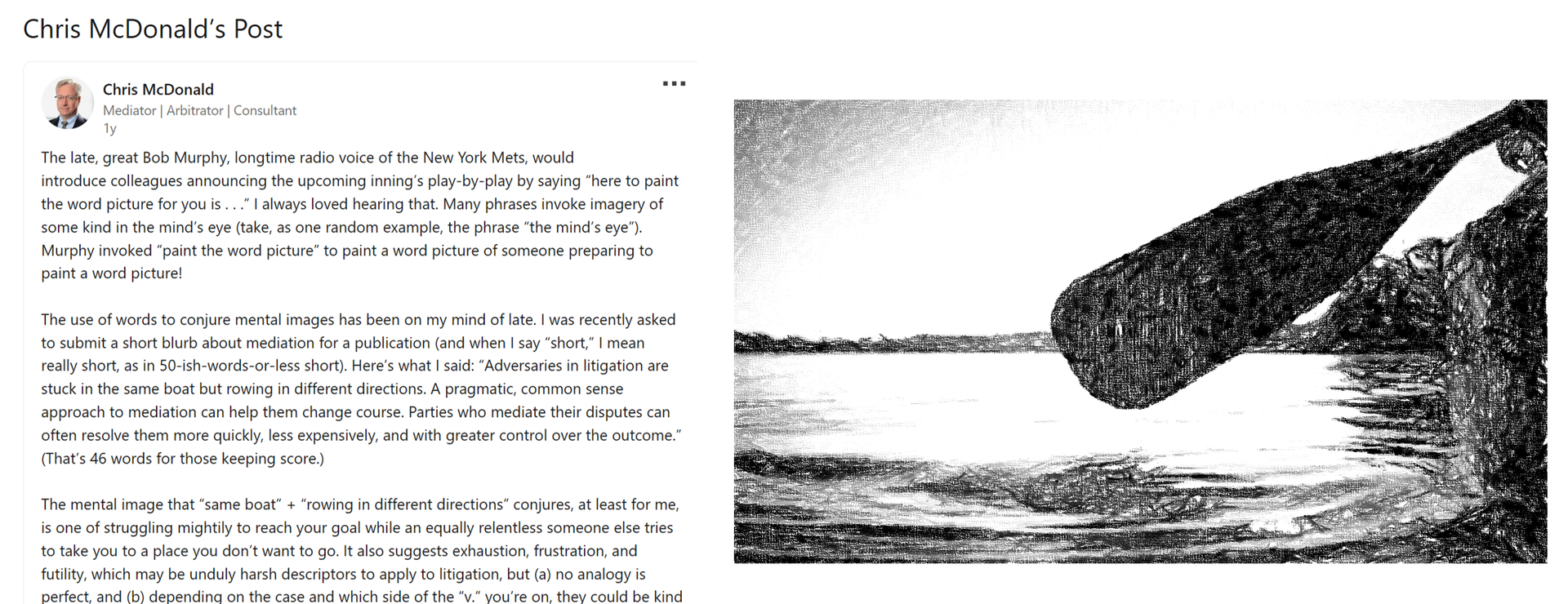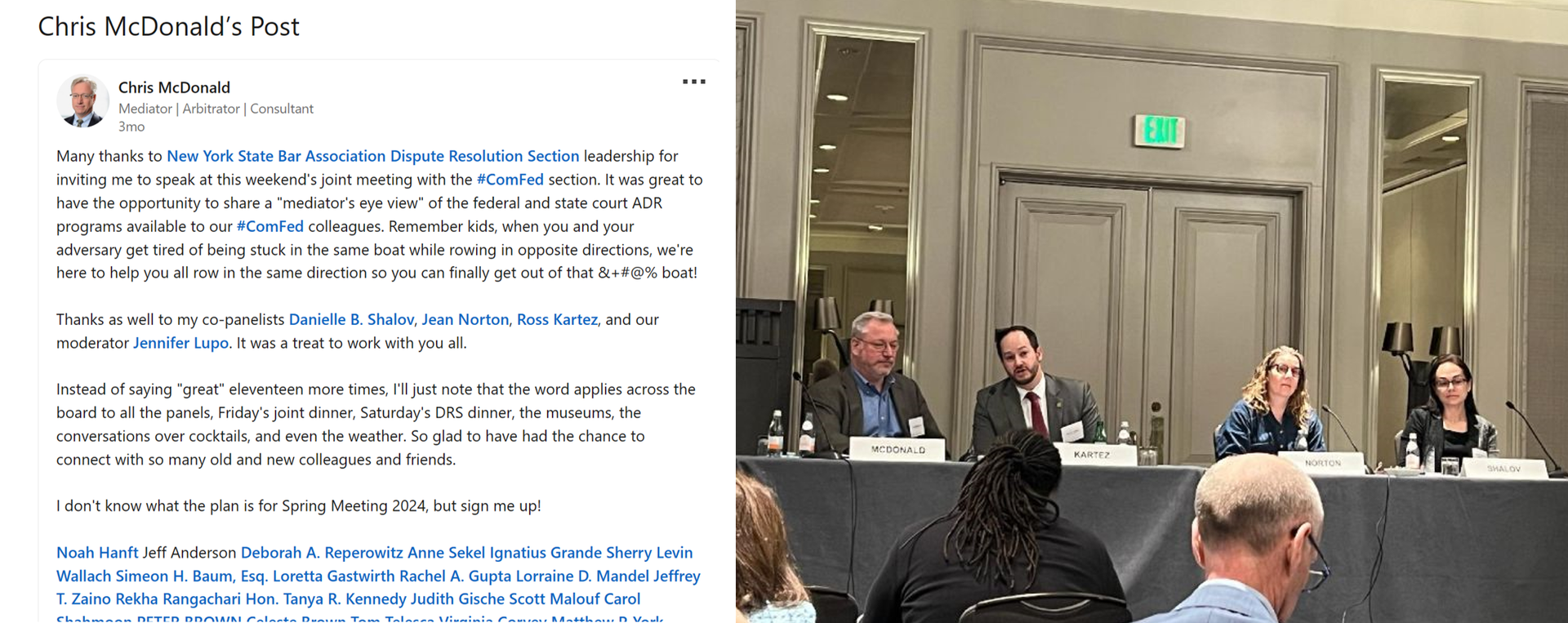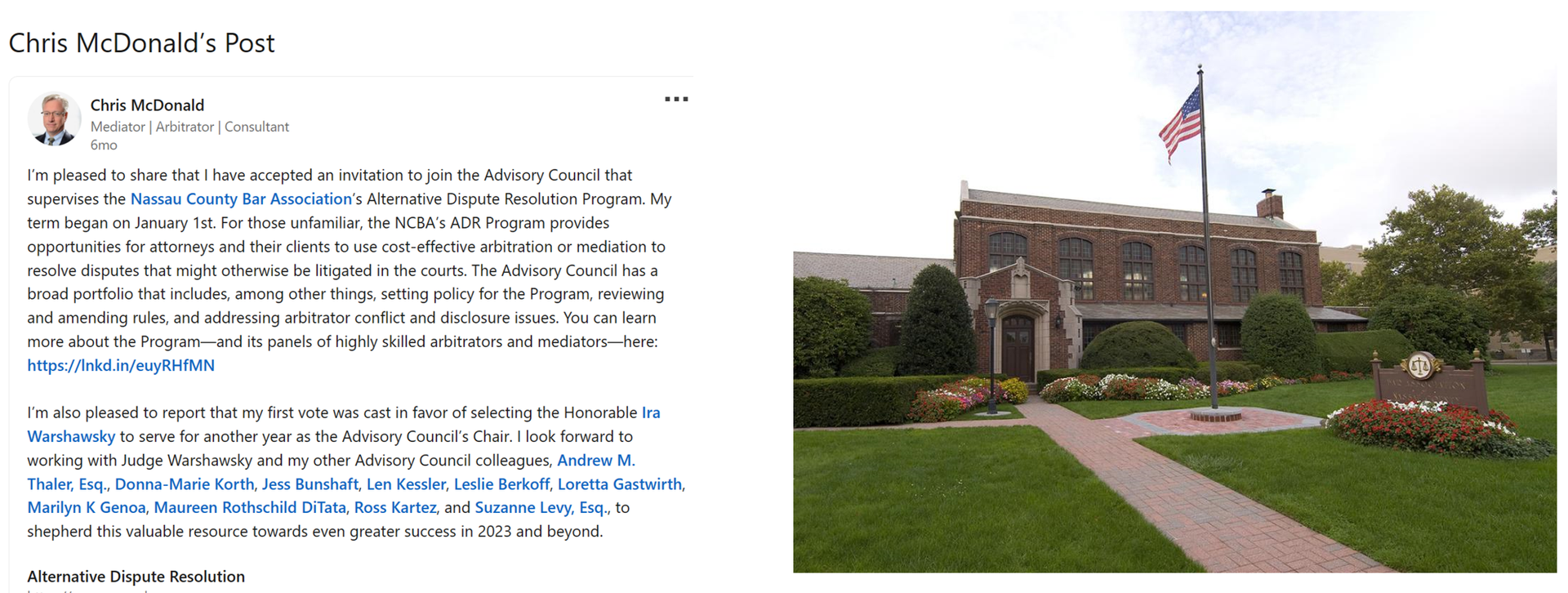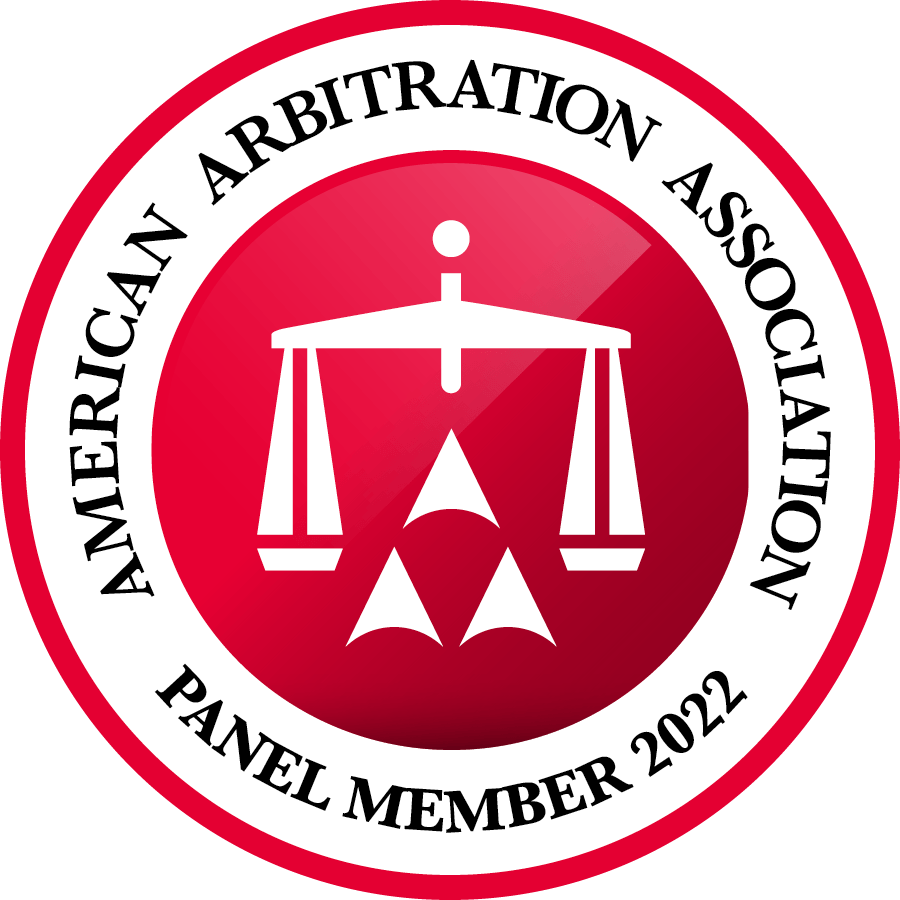About
Chris McDonald brings over thirty years of combined private-practice, in-house, and ADR experience to his role as a dispute resolution professional. Chris began his legal career at Patterson Belknap Webb & Tyler LLP and was later a partner at Labaton Sucharow LLP. While in private practice as a commercial and class action litigator, Chris prosecuted and defended federal and state court actions involving a wide array of industries (e.g., chain restaurants, consumer products, financial services, life sciences, manufacturing, media / entertainment) and areas of practice (e.g., antitrust / consumer protection, commercial / contract, employment, false advertising, securities fraud, trademark / trade dress infringement). In between his stints in private practice, Chris served as a senior attorney in MCI WorldCom’s Law and Public Policy Group, which was tasked with the overarching goal of creating conditions favorable for the company to engage in facilities-based competition following the enactment of the Telecommunications Act of 1996.
Now an independent mediator, arbitrator, and consultant, Chris draws upon his multiple-vantage-point experience as an attorney—as plaintiffs’ and defendants’ and in-house counsel—to assist parties in resolving conflicts that might otherwise seem intractable. He has successfully mediated scores of cases, including attorney malpractice, breach of contract, consumer product deceptive acts and practices, contractor-owner, employment discrimination, personal injury, and vendor-customer disputes, as well as PII data breach and wage-and-hour class actions. He has also served as a chair, wing, or solo arbitrator in dozens of matters, including broker-dealer, licensor-licensee, vendor-customer, and attorney-client fee disputes.
Chris is a member of the American Arbitration Association’s National Roster Arbitrators and its National Roster of Mediators, the mediation rosters for the U.S. District Courts for the Southern and Eastern Districts of New York, and the commercial and civil mediation rosters for all New York State Supreme Courts in and around New York City. Chris is also a member of FINRA’s arbitration roster, and he arbitrates and mediates on a pro bono basis for New York’s Part 137 attorney-client fee dispute resolution program.
He is also an active member of multiple bar associations. Chris serves on the Advisory Council that oversees the Nassau County Bar Association’s ADR Program. He is a member of the New York City Bar Association’s ADR Committee and an affiliate member of its Arbitration Committee. Chris is also a member of several New York State Bar Association sections and committees, including the Commercial and Federal Litigation Section’s ADR Committee and the Dispute Resolution Section’s Domestic Arbitration, Securities Arbitration, and Mediation Committees, and he is co-chair of the Mediation Committee’s Professional Development Subcommittee.
Services
Mediation
The phrase alternative dispute resolution — ADR for short—is one that naturally invites the question: “alternative” to what? In the context of disputes in or heading toward civil litigation, the logical alternative is often mediation—an informal and confidential process in which a “neutral,” who is not involved in the dispute, facilitates negotiations between or among the parties in conflict.
How a neutral “facilitates negotiations” in mediation should fit the needs of the moment. Accordingly, Chris McDonald does not strictly hew to a single mediation formula, style, or school of thought. Rather, he engages in a pragmatic, common sense approach, informed by his experience and training as an attorney and ADR practitioner. Whether or when to meet jointly or caucus, wrestle with or table a particular issue, “reality test” an offer or demand, or make a “mediator’s proposal” will depend on the circumstances of the case at hand.
Litigants that seek mutual incompatible goals can often abide by terms that resolve their dispute in a way that is acceptable to all. In the Venn diagram of what each side can “live with,” a mediator can help parties discover where the circles overlap. If all participants—clients, counsel, and carriers alike—are willing to negotiate in good faith, mediation can lead to resolutions that are reached more quickly, less expensively, and with greater party control over the outcome than would be the case if the dispute were left in the hands of a judge or jury.
Arbitration
On the spectrum of dispute resolution methods, arbitration lies in the middle ground between mediation on the one hand, and a civil action on the other. As with a lawsuit, parties in arbitration cede decision-making authority to a non-party—the arbitrator (or panel of arbitrators). A key difference, however, is that parties in litigation generally don’t have a say as to who their judge will be. As a “creature of contract,” arbitration allows the parties to exert significant control over the process, up to and including choosing the decision-makers. The manner in which arbitration empowers parties is different than with mediation, but the fact that party self-determination is an integral part of the arbitration process makes it in that respect similar to mediation.
Civil actions are often derided for being cumbersome, expensive and, given “the luck of the draw” on which judge hears the case and the possibility of appeals, unpredictable. As service providers, arbitrators should therefore conduct proceedings in a flexible and efficient manner, commit to shorter adjudication times, and deliver awards that will withstand scrutiny. Arbitrators must always be mindful that parties choosing commercial arbitration seek a surrogate process superior to litigation.
Chris is on the American Arbitration Association's National Roster of Arbitrators, including its commercial and consumer arbitration panels. He is also on FINRA's roster of arbitrators, and he arbitrates attorney-client fee disputes on a pro bono basis for New York Part 137 fee dispute resolution program.
Consulting
Chris McDonald’s background as an attorney is a valuable resource for counsel and parties contemplating or involved in litigation. Given the complex nature of his practice, he has extensive experience working with damages/economic, medical/scientific, regulatory, and other experts. He has taken scores of depositions, presented plaintiff- and defense-side “clopenings” and thematic modules in performing jury research, and conducted direct and cross-examinations of fact and expert witnesses at trial. A skilled writer and editor, he has drafted and revised pleadings, verdict forms, and everything in between.
In his role as a consultant, that skill set can be brought to bear to assist counsel and parties prepare for trial. For all its shortcomings, real or perceived, the adversarial process is the indispensable tool in the dispute resolution toolkit. Parties who want their proverbial ‘day in court’ are entitled to have it. And even when parties are represented by highly capable counsel, there are times when a draft brief could benefit from another pair of eyes. Or jury research presentations need sharpening. Or the author of a dense, jargon-heavy analysis requires guidance in turning it into a succinct and compelling expert report.
Assisting clients on the road to trial has the added benefit of positioning them to find a favorable exit ramp—a negotiated settlement—if they so choose. In those circumstances, Chris’s dual roles as experienced litigator and ADR practitioner can be put into service to help parties and counsel prepare for and participate in direct negotiations or mediation.



